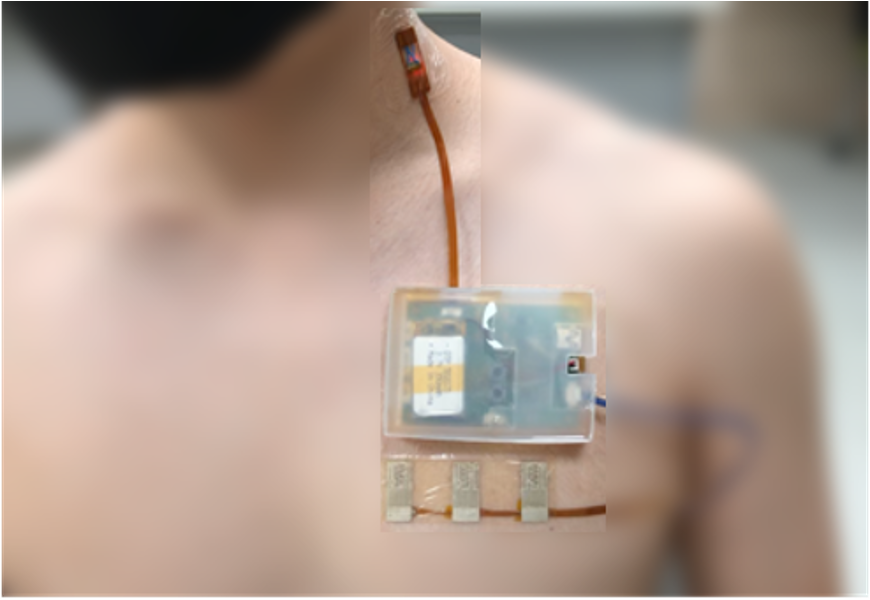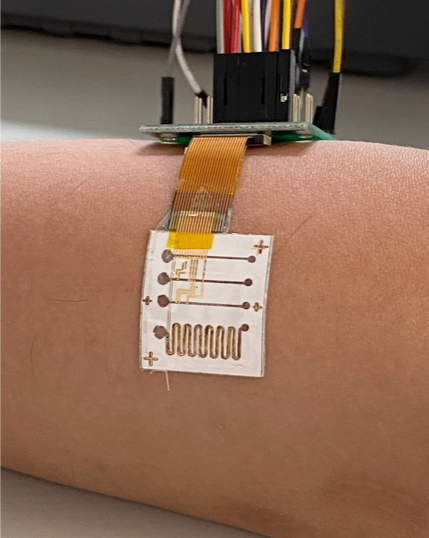Projects

ADVANTAGE: Visceral Pain Research
This consortium project targets the neural mechanisms of visceral pain, developing wearable and implantable bioelectronic sensors to monitor and treat complex conditions. Collaborating across Cambridge’s Medicine & Engineering departments, we integrate low‑power electronics and targeted interventions to personalize chronic pain management.

Cardiovascular Monitoring
A dry‑electrode wearable platform capturing ECG and PPG to estimate blood pressure cufflessly. Comfortable chest adhesion, smartphone‑linked AI analytics, and seamless data streaming make continuous cardiac monitoring accessible for clinical trials and patient care.

Multimodal Electrochemical Sensing
An OECT‑based wearable that non‑invasively measures glucose, lactate, and electrolytes in sweat via microfluidics. Real‑time, low‑power data is wirelessly streamed for metabolic health, diabetes management, and athletic performance optimization.